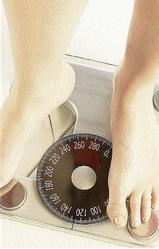Charlyn Fargo, Contributor

Leave it to the Japanese. A new study finds that the faster we eat, the more likely we are to gain weight. The findings, published in the British Medical Journal, found that people who eat quickly until full, are three times more likely to be overweight. The researchers conclude that eating styles, and not just what or how much is eaten, play a role in the obesity epidemic. Part of the problem is a fast-food lifestyle and the decline of 'orderly' dining habits.
In the study, Hiroyasu Iso and colleagues at Osaka University asked more than 3,000 Japanese volunteers, 30 to 69, about their eating. About half of the men and a little more than half of the women said they ate until full. About 45 per cent of the men and 36 per cent of the women said they ate quickly. Those who said they ate until full and ate quickly were three times more likely to be fat than people in the 'not eating until full and not eating quickly' group, the researchers found. The researchers blamed both the availability of food in big portions and habits like watching television while eating.
The researchers conclude that parents should encourage children to eat slowly and in a calm surrounding. Good advice for all of us.
Winning question on cancer
Q: Is it true that cancer survivors face increased risk for osteoporosis?
A: Yes, depending on the type of treatment used, some cancer survivors do seem to be at increased risk for osteoporosis, the disease in which bones become weaker. So who's most likely to be affected? Survivors of certain childhood cancers seem to have a greater risk of developing osteoporosis as adults. Men treated for prostate cancer with hormone deprivation therapy (also called androgen deprivation therapy) also face increased risk. Women treated for breast cancer can have an increased chance of developing osteoporosis due to decreased oestrogen levels following chemotherapy or surgery, or as a direct side effect of some types of chemotherapy or even the cancer itself.
Extended treatment with glucocorticoid medication (as part of cancer treatment or for other conditions) also increases risk. Besides these cancer-related influences, developing osteoporosis is more likely for those who are small-boned, have a family history of osteoporosis, lack adequate calcium and physical activity, smoke or drink too much alcohol.
However, osteoporosis can be treated and prevented. Make sure you get adequate calcium and vitamin D (essential for calcium absorption) in the diet or via supplements if needed. Engage in regular, weight-bearing physical activity like walking. Avoid tobacco. Drink alcohol in moderation, if at all. Cancer survivors should talk with their doctor about whether they may be at risk and could benefit from a bone mineral density test. Today, medications that can successfully treat osteoporosis are available.
Source: American Institute for Cancer Research.
New food pyramid
Attention parents, there is a new food pyramid for preschoolers. The U.S. Department of Agriculture officially unveiled MyPyramid for Preschoolers at the American Dietetic Association annual meeting in Chicago. It is intended to help parents make better food choices for preschool children, two to five years old, at a time when food habits and taste preferences are established.
The new pyramid considers calories for preschoolers - nearly 15 of the nation's preschoolers are overweight - and gives a how-to guide on children's nutrition, from how to talk to your preschooler about food to how to know if your preschooler is eating enough. The new preschool version is at www.mypyramid.gov.
The Creators Syndicate website at www.creators.com.

